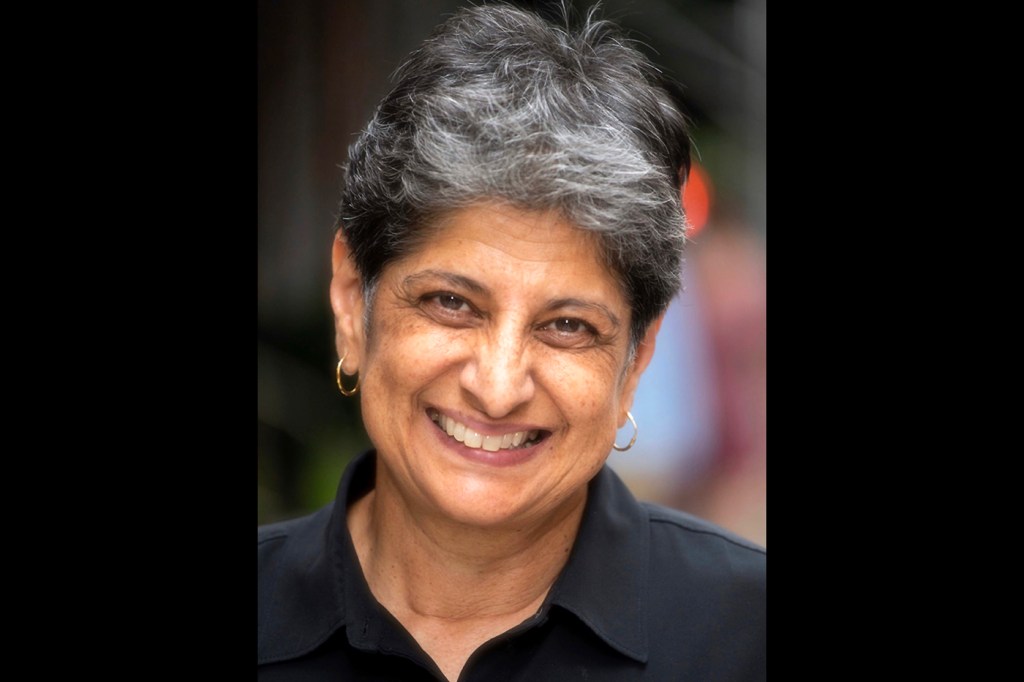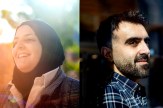Urvashi Vaid, Northeastern alum, remembered as legendary LGBTQ activist

In the world of American progressive politics, Urvashi Vaid, who died in Manhattan on Saturday at 63 after a battle with cancer, was a legend whose intersectional approach to LGBTQ rights would go on to influence generations of activists.
Vaid, a 1983 Northeastern law graduate, is best known for her innovative, intersectional approach to activism. In her landmark 1995 book “Virtual Equality,” Vaid argued that the movement for LGBTQ rights should be seen as a fight for human rights. For Vaid, the movement would only succeed if activists worked alongside those who were also fighting for racial justice and gender equality.
“I know everyone uses ‘intersectionality.’ It’s become a buzzword and everyone talks about it, but the reality is that years before it was even a word, that’s just the way Urvashi operated,” Cathy Renna, communication director for the National LGBTQ Task Force, said. “She knew, in that uncompromising way that she always did, that that’s how we needed to approach our work.
“She wasn’t ahead of the curve. She was the curve. She was the unstoppable force that made us bend.”
On his first day at the Northeastern School of Law in 1980, Richard Burns noticed Vaid in the student lounge reading the latest edition of Gay Community News. The two law students struck up a conversation and they became fast friends and allies in their fight for LGBTQ rights on and off campus.
“We quickly organized a lesbian-gay caucus for the law school, and we began, in our first year, meeting individually with our professors on the faculty to ask them to try and incorporate lesbian and gay lives and cases into the law school curriculum,” Burns, who graduated alongside Vaid and now serves as board chair for the upcoming National LGBTQ Museum, said. “Our professors were very kind. Some of them said to us that they had never actually met a gay person before, so it was a very different time.”

Born in New Delhi on Oct. 8, 1958, Vaid moved to Potsdam, New York, with her family in 1966 at the age of 8. She took to activism early and eagerly, participating in the anti-Vietnam War movement as an 11-year-old before going on to receive a bachelor’s degree from Vassar College.
At Northeastern, Vaid engaged with the Boston Lesbian/Gay Political Alliance and served on the board of GLAD and Gay Community News, a weekly newspaper published by and for the LGBTQ community. After graduating from Northeastern, Vaid shot to the natonal stage, working on the American Civil Liberties Union’s National Prison Project in Washington, D.C., before joining the National LGBTQ Task Force, then known as the National Gay and Lesbian Task Force.
Vaid served as executive director of the organization, the oldest national advocacy group for the LGBTQ community in the country, from 1989 to 1992. She shepherded the organization through the AIDS epidemic, at a time when same-sex marriage was still not legal and law enforcement nationwide was still enforcing sodomy laws.
Vaid’s uncompromising, relentless approach to her work inspired countless activists like Renna, who found her own activist calling after hearing Vaid’s speech at the 1993 March on Washington. It also rubbed some people the wrong way.
Vaid was no stranger to the often hostile response to LGBTQ protesters at the time. She was famously escorted out of the room during President George H.W. Bush’s first speech in response to the AIDS crisis after holding up a sign that read, “Talk is cheap, AIDS funding is not.”
“People don’t as a general rule interrupt the president. There’s a lot of social barriers to doing such a thing, but Urv was pretty much the most fearless person I knew,” said Kevin Cathcart, who graduated from the School of Law in 1982. “Because she was fearless and because she pushed herself and did these things, it opened up space for other people to do more.”
“You knew you were going to get the truth even if you didn’t want to hear the truth, but it came with so much warmth and heart that you understood the spirit in which this truth, or hard truth, was offered,” Burns said. “It was direct and could be confrontational, but there was always kindness and generosity mixed in.”
As much as Renna recalled hearing Vaid’s passionate speeches in front of cheering crowds, she also remembered a different image of Vaid: the ardent orator strolling down the streets of Provincetown, Massachusetts, with her partner of more than 30 years, writer and comedian Kate Clinton.
“She loved being in Provincetown and going to the beach and having a good time,” Renna said. “She learned how to appreciate life in a way that a lot of us don’t always grow into.”
From Northeastern to the steps of the Supreme Court, Vaid dedicated her life to fighting for the rights of those inside and outside the LGBTQ community, rights that, Renna pointed out, are once again under fire.
“Bodily autonomy, sexual freedom–those are things that are very much on the line again,” Renna said. “[Vaid] taught generations to look at the movement differently and look at their activism differently, and we have a lot to thank her for.”
For media inquiries, please contact media@northeastern.edu.






